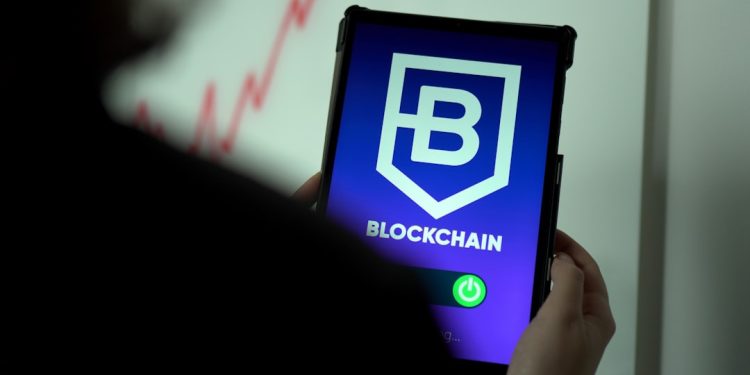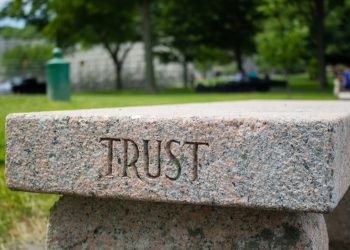No products in the cart.
Building Authority in the Age of Blockchain: Skills Over Credentials
Learn how to build industry authority in blockchain without traditional credentials, leveraging expertise and innovative strategies.
San Francisco, USA — In an age where technology evolves faster than the speed of light, the traditional pathways to credibility often feel outdated. The blockchain industry, with its rapid growth and disruptive potential, is a prime example. Here, the old adage of ‘it’s not what you know, but who you know’ is being rewritten. The new mantra? ‘It’s not about your credentials, but your capabilities.’
As the barriers to entry in tech dissolve, many are asking: How do you establish authority in a field that values innovation and adaptability over traditional diplomas? It’s a question that resonates deeply among young professionals looking to carve their niche in an increasingly competitive landscape.

In the world of blockchain, where concepts like decentralization and transparency reign, the notion of authority is shifting. Gone are the days when a degree from a prestigious institution was the golden ticket. Instead, thought leaders are emerging from diverse backgrounds—self-taught developers, passionate advocates, and even artists who understand the transformative power of this technology. These pioneers are demonstrating that expertise can be validated through practical contributions and community engagement.
Take, for instance, the journey of a young woman named Aisha Khan from Toronto, Canada. With no formal education in computer science, she began participating in local hackathons and blockchain meetups. Her curiosity and commitment to learning led her to create an open-source project that simplified blockchain transactions for small businesses. Today, she is a sought-after speaker and advisor, her authority rooted not in traditional credentials but in her ability to solve real-world problems.
 Digital Citizenship
Digital CitizenshipConscious Leadership: The Future of Executive Education
This article examines the emergence of conscious leadership in executive education, highlighting the role of mindfulness and self-awareness in modern…
Read More →Her curiosity and commitment to learning led her to create an open-source project that simplified blockchain transactions for small businesses.
Establishing credibility in such a landscape requires strategic moves. Building a strong personal brand is essential. This goes beyond simply having a presence on social media; it involves sharing insights, contributing to discussions, and showcasing expertise through various platforms. Blogging, podcasting, or even engaging in YouTube channels dedicated to blockchain can elevate one’s voice. Each post, each video, is a brick laid in the foundation of authority.
Moreover, mentorship plays a pivotal role. Connecting with established professionals in the industry can provide invaluable insights and guidance. Aisha’s story highlights the importance of networking. She sought out mentors who not only helped refine her technical skills but also introduced her to key players in the industry, widening her opportunities exponentially.
But it’s not just about individual efforts; communities are key. Blockchain enthusiasts around the globe are forming networks that foster collaboration and support. Platforms like GitHub and Discord have become breeding grounds for innovation, where individuals can contribute to projects and gain recognition for their work.
However, the road isn’t without its challenges. Impostor syndrome can loom large, especially for those who lack formal credentials. It’s crucial to remember that expertise is often born from experience and a willingness to learn. Embracing a growth mindset and viewing challenges as opportunities can help navigate these hurdles.
 Career Advice
Career AdviceInfluencing Without a Title: Navigating Your First Job
Navigating your first job can be daunting. Learn how to lead without authority by leveraging influence and problem-solving skills.
Read More →As the gig economy continues to flourish, alternative validation methods are emerging. Badges, certifications from recognized online platforms, and peer-reviewed projects are becoming acceptable indicators of expertise. This democratization of skills means that anyone with the drive to learn can gain recognition, regardless of their background.
With the rise of remote work, opportunities for establishing authority have expanded. Virtual conferences, webinars, and online courses enable individuals to connect with audiences worldwide. This global reach amplifies the potential for recognition and influence.
Embracing a growth mindset and viewing challenges as opportunities can help navigate these hurdles.
In fact, many businesses are now prioritizing skills over degrees in their hiring processes. A report by the World Economic Forum highlights that nearly 50% of companies are considering candidates based on their skills and portfolio rather than formal education credentials [1]. This shift opens doors for those willing to showcase their abilities through practical work.
Looking ahead, the landscape of professional credibility will continue to evolve. As blockchain technology matures, the demand for diverse skill sets will grow. Companies will increasingly seek individuals who can navigate the complexities of this new frontier. For young professionals and aspiring leaders, the message is clear: invest in your skills, engage with your community, and demonstrate your expertise through tangible contributions.
 News
NewsAustralia’s New Visa Rules: What’s new for International Students and Dodgy Colleges
On 21 March 2024, the Australian Government unveiled major visa reforms under its Migration Strategy. These changes aim to boost…
Read More →Ultimately, the future belongs to those who dare to redefine authority. As Aisha Khan’s journey illustrates, the path to credibility is no longer a straight line paved with degrees. Instead, it is a winding road of innovation, community engagement, and relentless pursuit of knowledge.











